Preventing spinal cord injury through digital adaptation
Founded in 1984, the mission of Paraplegic Benefit Fund Australia (PBF Australia) is to reduce the impact of spinal cord injury, and reduce the number of Australians becoming permanently paralysed through accidental injury. The organisation plays an important role in preventing spinal cord injuries through community programs delivered in businesses, schools, and for community groups.
PBF Australia employs people who have sustained spinal cord injuries to talk about their experiences, and the effect that injury has had on their lives and those of their families and friends.
Towards equipment to develop and deliver interactive online safety education presentations on the prevention of spinal cord injury.
PBF (Australia) Ltd
12/18/2020
$55,000
Lotterywest
$50,000
Perth Metropolitan
People with disability, General Community
- Professional quality, portable studio equipment allowed continued delivery of the community prevention program in Western Australia throughout COVID-19 restrictions.
- Presenters developed skills and built confidence in utilising the new technology and presenting online.
- Increased geographic reach of the program enabled through remote delivery.
- Increased accessibility for staff to present from their own homes.
- Ensuring the budget included support for internal resourcing.
- Working closely with staff to understand their current skill and confidence levels, and developing training from there.
- Creating user friendly manuals to support staff beyond the structured training sessions.
- COVID-19 impacted many suppliers, resulting in delays with project delivery.
- Occasionally, organisations receiving presentations didn’t have the technology required to participate.
- Issues with internet connectivity.
- Ongoing preference for in-person presentations.
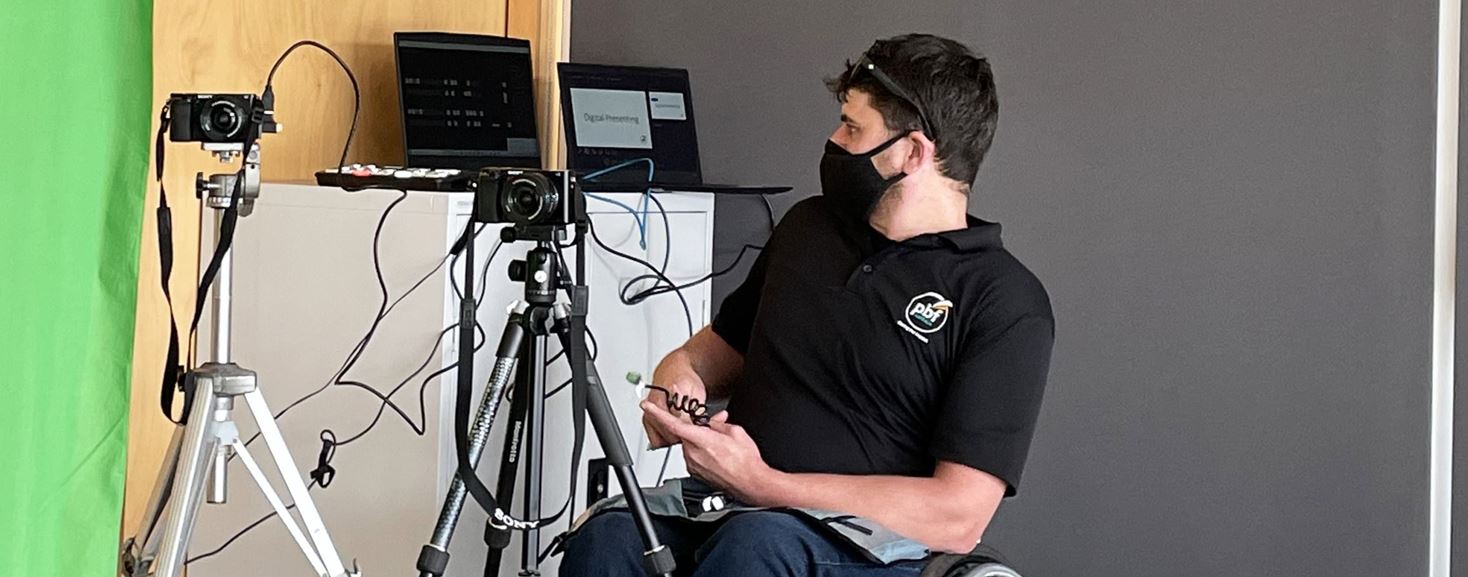
Opportunity
On average, one person sustains a spinal cord injury in Australia every day, with approximately 20,800 Australians living with spinal cord injury. Of these people, around 15,000 live with paralysis [1]. While most people who have a spinal cord injury are young males, anyone can be impacted by spinal cord injury and paraplegia.
COVID-19 significantly impacted the activities of PBF Australia, causing the cancellation of face-to-face presentations for communities, schools, universities, and workplaces. These face-to-face engagements were a key part of the organisation’s community prevention program, delivered by presenters who have themselves suffered traumatic spinal cord injury. In response to this, the PBF Australia team applied to Lotterywest’s Strengthening and Adapting Organisations program, a special COVID-19 Relief Fund, to adapt their program to continue operations throughout 2020.
Approach
PBF Australia identified the opportunity to develop and deliver interactive online safety education presentations on the impact and prevention of spinal cord injury for West Australians. A Lotterywest grant of $50,000 supported the purchase of studio equipment, which helped the organisation to continue delivering real time presentations despite COVID-19 restrictions. A presenter training program and user-friendly manual on how to use the equipment were key supporting elements of the program. This holistic program ensured presenters felt comfortable and confident in the new approach.
“Seeing the personal development of our speakers has been fantastic. People that were self-described “technophobes” are now comfortable using the equipment and being in front of the camera.”
Chris, PBF Australia staff member
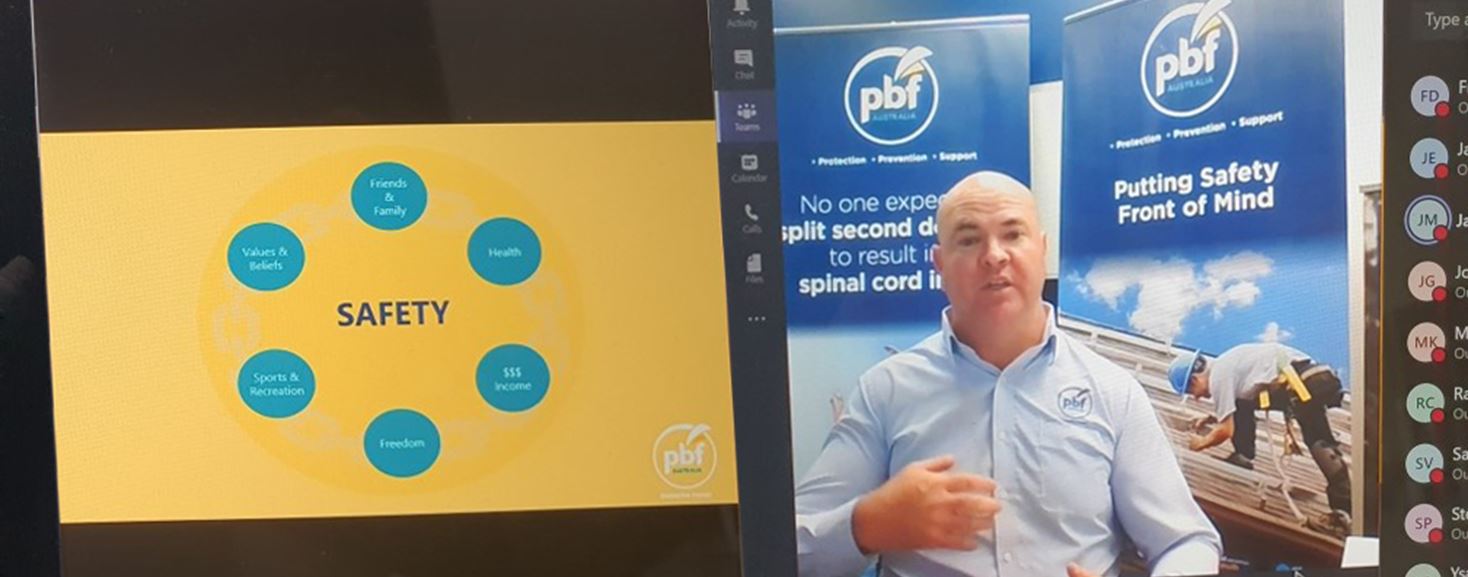
Impacts and outcomes
The purchase of professional quality, portable studio equipment allowed PBF Australia to continue to deliver their community prevention program in Western Australia throughout COVID-19 restrictions.
Nine presenters participated in training for the digital project. This included learning how to use the new equipment, as well as a session with an external facilitator to upskill and adapt presentation styles to be engaging for digital audiences. Following group training, presenters worked one-on-one with PBF Australia staff to hone their own personal presentations and deliver practice sessions.
For the presenters, the development of skills and confidence for a new format of presenting was a key outcome. All presenters who participated in the training reported a positive experience.
“Initially I was sceptical about the online presentations as I have always been nervous on camera, and I wasn’t confident that I would be able to engage with the audience. With practice though, and now having successfully delivered a number of digital presentations, I feel so much more confident and even have helped to train and develop other speakers too. Being able to offer online presentations to schools, clubs and businesses means we will now be able to share our stories with more people to help prevent spinal cord injuries.” Jodie, PBF Australia Staff member
Over the course of the pilot:
28
Presentations delivered to workplaces, community groups, schools, and sporting clubs.
453
People attended digital presentations.
9
Presenters undertook training enabling them to utilise the new equipment.
“Accessibility and travel restraints can sometimes be an issue with face-to-face presentations. This new technology has given me the opportunity to share my story in locations far and wide that previously were inaccessible.”
Konnah, PBF Australia staff member
While some presentations have returned to face-to-face delivery, PBF Australia has retained the online format as an option for presentations. This has enabled the organisation to increase access across the state, including in regional and remote locations. This broadening of geographic reach has had the flow on effect of creating additional opportunities for staff to more easily present community prevention sessions from their homes.
“Living outside of the metro area has limited the number of face-to-face presentations I can do and having two young kids it can be difficult to schedule in bookings. Having the ability to set up and present from home will allow me to share my story more often and to a broader audience.”
Tayla, PBF Australia staff member
What worked
Budget accurately
Ensuring that the budget was as accurate as possible, and included support for internal resourcing was key to the successful delivery of this project.
Don’t make assumptions about skills and confidence
There were several staff with limited technological skills and confidence involved in the program. By talking with staff to find out their skill and confidence level prior, the digital training program could be developed so that it could support all staff members regardless of prior experience or confidence.
Colour coded guides and resources
In developing resources to support staff to use equipment, PBF Australia colour coded each piece of equipment with tape that matched the colours in the instruction manual. This was an easy way for staff to identify equipment they may have been unfamiliar with and locate relevant instructions. Guides and resources developed were supported by training seminars for presenters.
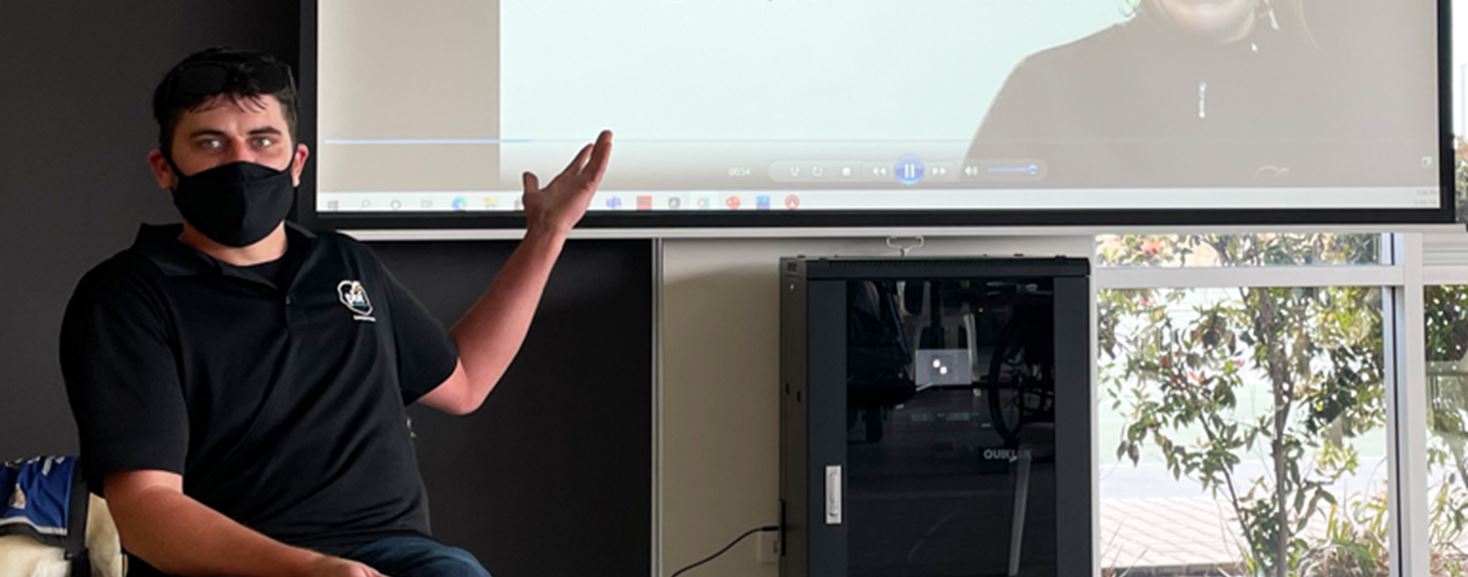
Key challenges
Sticking to timelines during COVID-19
Working with external stakeholders was a key part of this project, many of whom were impacted by COVID-19 and staff shortages. This resulted in planned activities taking longer than originally anticipated. By staying connected with Lotterywest about these delays, a variation was provided to extend the period of the grant to enable the project to be fully delivered.
Technology is not a perfect solution
At times, technology could be a challenge. Occasionally, organisations receiving presentations didn’t have the technology required to participate (e.g., Teams, Zoom or connected speakers) or there were issues with internet connectivity.
It took time for the digital presentations to reach the standard of presentation that had previously been established by in-person presentations. Continued exploration of technology, and ongoing support and training in presentation skills helped to address these challenges.
Many still prefer in-person presentations
PBF Australia have received some feedback that in-person presentations would have been preferred, although all organisations that received digital presentations were thankful for the adaptation given the circumstances.
REFERENCES
- Perry Cross Spinal Research Foundation, Facts. 2023 [cited 14 September 2023]; Available from Facts | PCSRF | To Cure Paralysis for All
Learn about wellbeing
Understand how your community is going to help you to better target and plan your project.
Ready to plan your project?
Understand your vision, plan your impact and report on the outcomes of your project with three easy interactive tools in the Community Impact Planner.
Acknowledgement of Country
The Western Australian Community Impact Hub acknowledges and pays respect to the Traditional Owners of the land on which we are based, the Whadjuk people of the Noongar Nation and extends that respect to all the Traditional Owners and Elders of this country. We recognise the significant importance of their cultural heritage, values and beliefs and how these contribute to the positive health and wellbeing of the whole community.
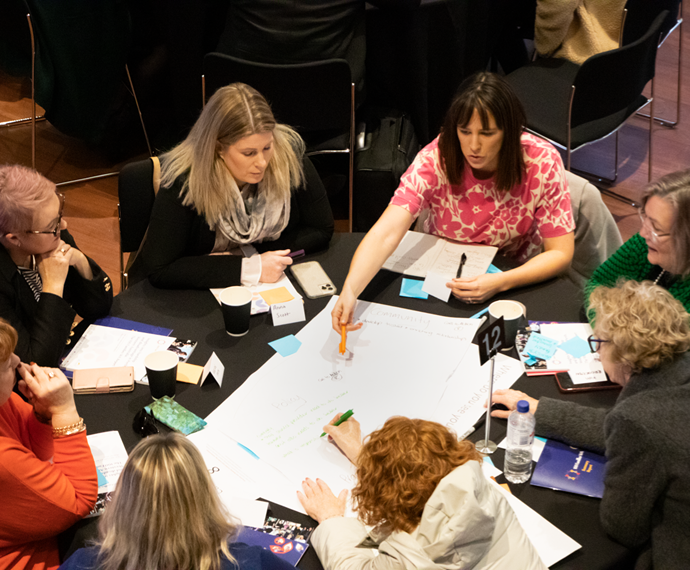
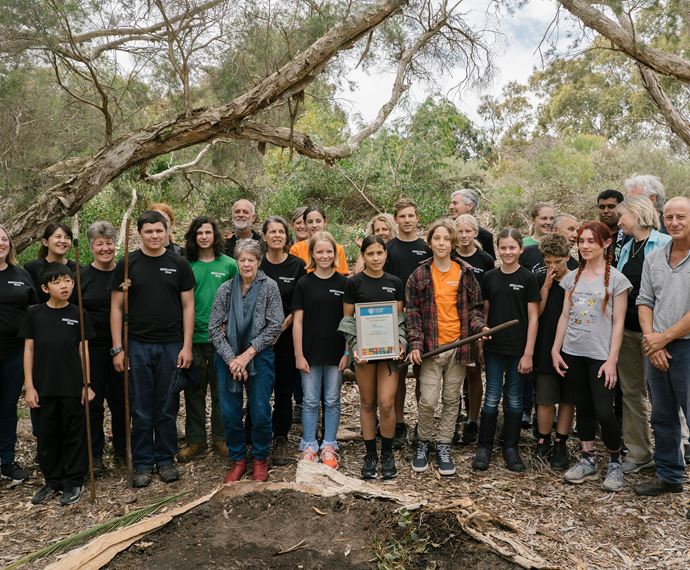
![Spacecubed Photo 3[1]](/media/qepmnzdj/spacecubed_photo_3-1.jpg?center=0.78033077899887282,0.57733025667655247&mode=crop&width=690&height=570&rnd=133189380669400000&quality=80)